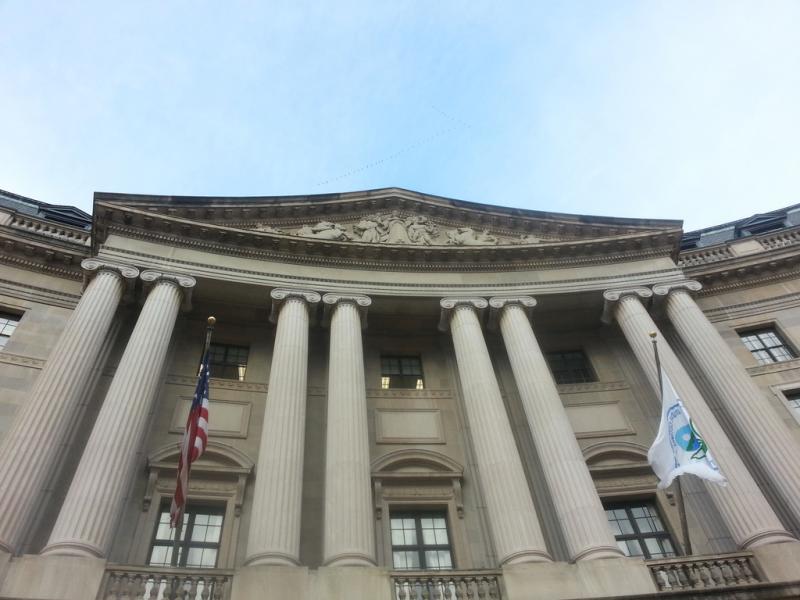
U.S. Senator Jim Inhofe (R-Okla.), a senior member of the Environment and Public Works (EPW) Committee, introduced SB 2161 last week to rein in the EPA and ensure future EPA regulations are enacted in a responsible manner.
The EPA Employment Impact Analysis Act would require the Environmental Protection Agency (EPA) to conduct an economic impact analysis on current air regulations before future ones may be enacted. An economic impact analysis is already required under the Clean Air Act; however the EPA has never once actually complied with the mandated procedure.
Pursuant to Section 321(a) of the Clean Air Act, the EPA is required to report how current air regulations are affecting job creation in the United States. “The EPA has not once abided by this provision and failed to complete a single analysis on its air rules to date.“This fact is not only an egregious violation of the EPA’s own policy but is also concerning given the widespread impact EPA regulations have on the U.S. economy.
Senator Inhofe’s bill would simply require the EPA to follow its own procedures as outlined in the Clean Air Act. Specifically, the bill would prohibit the EPA from “finalizing any major regulation until the agency analyzes the economic impact of its current air regulations as required under Section 321(a) of the Clean Air Act.” Essentially the EPA would have to consider the effects current regulations are having on the economy before justifying the creation of future regulations.
The problem is the Obama EPA has implemented costly regulations while failing to maintain research on any effects of such regulations on the U.S. economy. Inhofe cites a number of examples where “the EPA concluded that a regulation would result in the creation of jobs, yet the National Economic Research Associates (NERA) Economic Consulting firm…reported that the same regulation would result in thousands of job losses.” Senator Inhofe cites 3 specific examples in support of the bill:
- Utility MACT rule (77 Fed. Reg. 9301): EPA’s analysis of the Utility MACT rule estimated that implementation of the final rule would result in the creation of 46,000 temporary construction jobs and 8,000 net new permanent jobs. NERA’s whole economy analysis found that the rule would have a negative impact on the income of workers in an amount equivalent to 180,000 to 215,000 lost jobs in 2014, and 50,000 to 85,000 lost jobs each year thereafter.
- Cross State Air Pollution rule (76 Fed. Reg. 48208): The EPA’s analysis of the Cross State Air Pollution rule estimated that implementation of the final rule would result in the creation of 700 jobs per year. NERA ‘s whole economy analysis found that the rule would result in the elimination of a total of 34,000 jobs from 2013 to 2037.
- Boiler MACT rule (76 Fed. Reg. 15608): EPA’s analysis of the Boiler MACT rule estimated that implementation of the final rule would result in the creation of 2,200 jobs per year. NERA’s whole economy analysis found that the rule would result in the elimination of 28,000 jobs per year from 2013 to 2037.
The discrepancies between the EPA’s projected effects of such regulations on the economy and the actual amount of jobs lost is mind boggling. All in all NERA’s analysis of the economic impact of the three regulations cited above found the regulations together would likely kill 2,876,000 million jobs by 2037. The almost three million job losses projected by NERA strongly contrasts the job creation numbers projected by the EPA. It must also be pointed out that the aforementioned examples are only three EPA regulations out of the multitude of EPA regulations currently in place.
If the EPA had been adhering to its own procedures and analyzing the effects of regulations as required by the Clean Air Act hundreds of thousands of jobs as of 2014 could have been saved. Senator Inhofe’s bill would ensure that the EPA monitors and reports on the effects of its own regulations so failed regulations do not continue to have detrimental impacts on the American economy.
Simply put, Senator Inhofe’s bill would save jobs, taxpayer dollars and ensure the EPA enacts responsible regulations.

